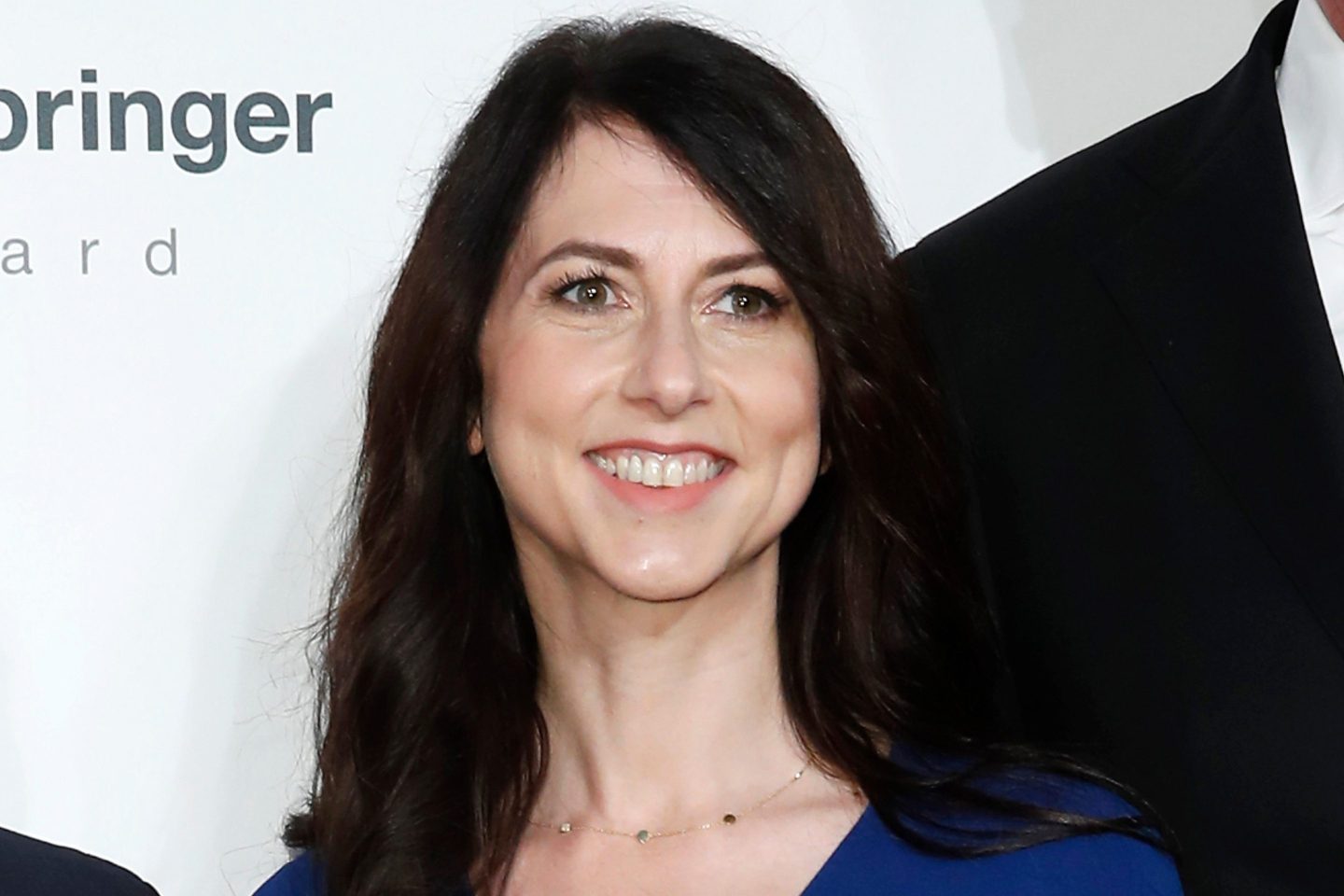In 2022, Michelle Cordeiro Grant moved from New York to Florida, and she started to see energy drinks everywhere.
“I thought, wow, I don’t drink these, but they’re everywhere,” she said. “Everywhere I go, teachers, workers, fitness girls. I read an earnings report from Celsius and realized that this is a $20 billion industry, with legacy brands I don’t connect with.”
So, Cordeiro Grant—who’d sold her venture-backed lingerie company Lively to Wacoal in 2019—went to Whole Foods, looking for a better-for-you energy drink. She figured if it was anywhere, it was there. But no dice, since most existing energy drinks weren’t Whole Foods-standard (they contained erythritol and sucralose).
“I was like ‘ahhhhh,’” Cordeiro Grant makes a sing-song, gates-of-heaven-opening sound. “I put it on social media: What if I make an energy meets wellness brand? We got 100,000 likes and that was the day Gorgie was born.”
Gorgie is Cordeiro Grant’s better-for-you energy drink that’s built on green tea caffeine, vitamins B6 and B12, and no sugar. The brand has gained traction with retailers, and is on shelves at Kroger, Sprouts, Albertsons, Whole Foods, and Erewhon, with imminent plans for expansion.
Gorgie has recently hit a key milestone, raising a $24.5 million Series A led by Notable Capital, Fortune can exclusively report. Coefficient Capital also participated in the round, as did Gorgie board members Jason Cohen and Yossi Nasser. To date, Gorgie has now raised $37 million. Notable was also an investor in Cordeiro Grant’s Lively, which sold for $105 million (an initially announced $85 million price tag, plus the guaranteed earnout).
“Our point of view is that we can treat brands like fashion brands, creating that emotional connection,” she said.
The investment comes at a tough time for consumer startup investing—the space has seen a pullback from VCs in the aftermath of the DTC boom. That being said, it’s also a time with some optimism, with some big-ticket exits materializing this year, especially PepsiCo’s $1.95 billion acquisition of soda brand Poppi.
In Gorgie’s case, the company isn’t disclosing revenue, but says that it grew fivefold year over year in 2024 and that, on average, customers are reordering from the website every eight days. The caffeine buzz off a Gorgie drink is gentle but perceptible, and Cordeiro Grant found it through trial and error.
“I immediately just started taking my samples with the legacy brands—Red Bull, Monster, Celsius—and blind taste testing with people in a totally non-creepy way everywhere I went,” she laughs. “I watched the patterns of how people were responding, what made them jitter…I would say it took 40 to 50 rounds to get there, even reformulating a month before launch, and it was the greatest thing we ever did.”
Cordeiro Grant, a Victoria’s Secret executive earlier in her career, sees parallels between energy drinks and lingerie you maybe wouldn’t expect: Both are sectors filled with legacy brands that miss the mark on connecting with a key part of the marketplace. In Gorgie’s case, that’s women, but it’s also the Oura-ring-fueled, Erewhon-loving zeitgeist around wellness. Erewhon, for those not in the know, is L.A.’s uber-fashionable, celebrity-favorite market with prices to match. At Erewhon, you can sneeze and spend $40, and have an absolutely lovely time.
Gorgie has been in Erewhon since 2023, and the company says it’s since grown the posh grocery’s energy drink category. (Gorgie runs a little expensive for an energy drink, about $3.50 a pop in L.A. But that’s essentially on par with Red Bulls, depending on where you buy them.)
“Erewhon was shocking for me,” said Cordeiro Grant. “We had only been in the market about six months, and we got a message from them on social media. And I was like ‘no way, it’s spam.’ Our team said ‘we’re gonna respond.’”
Gorgie sent Erewhon all six flavors at the time—from Tropical Punch to Wild Berry. “In 48 hours, they said ‘we want all six,’” said Cordeiro Grant. Since, Gorgie has even gotten its own famous Erewhon smoothie, a signifier of L.A. royalty, usually reserved for stars like Hailey Bieber, Olivia Rodrigo, and Sabrina Carpenter.
Though stores like Erewhon are part of Gorgie’s origins, they’re far from the whole picture when it comes to the brand’s future—this summer, across the U.S. Gorgie will hit 1,900 Target stores. And that’s when something that started small, with a Whole Foods hunch, becomes ubiquitous.
See you tomorrow,
Allie Garfinkle
X: @agarfinks
Email: alexandra.garfinkle@fortune.com
Submit a deal for the Term Sheet newsletter here.
Nina Ajemian curated the deals section of today’s newsletter. Subscribe here.
Update, April 29, 2025: The online version of this story has been updated to reflect Lively’s final sale price.
VENTURE DEALS
- Lightrun, a New York City-based developer observability platform, raised $70 million in Series B funding. Accel and Insight Partners led the round and were joined by Citi, Glilot Capital, GTM Capital, and Sorenson Capital.
- Pliant, a Berlin-based B2B payment solutions provider, raised $40 million in Series B funding. Illuminate Financial and Speedinvest led the round and was joined by existing investors PayPal Ventures and Motive Ventures.
- DePoly, a Zurich-based plastics-to-raw-material recycling company, raised $23 million in seed funding. MassMutual Ventures led the round and was joined by existing investors Founderful, ACE & Company, Angel Invest, and others.
- P-1 AI, a San Francisco-based engineer AI agent developer, raised $23 million in seed funding. Radical Ventures led the round and was joined by Village Global, Schematic Ventures, Lerer Hippeau, and others.
- Glacier, a San Francisco-based AI-powered recycling robots developer, raised $16 million in Series A funding. Ecosystem Integrity Fund led the round and was joined by Elysium, Overlap Holdings, Cox Exponential, existing investors New Enterprise Associates, AlleyCorp, Overture Climate VC, and others.
- Basil Systems, a Boston-based AI-powered life sciences product lifecycle intelligence platform, raised $11.5 million in funding. Golden Ventures led the round and was joined by Hearst Ventures and Argosy Capital.
- Sprive, a London-based mortgage overpayment app, raised £5.5 million ($7.4 million) in funding. Ascension led the round and was joined by Channel4 Ventures, Velocity Capital, and Two Magnolias.
- Pistachio, an Oslo-based cybersecurity awareness training platform for businesses, raised $7 million in Series A funding. Walter Ventures led the round and was joined by dékapital, Angel Invest, MP Pensjon, and J12 Ventures.
- Particula, a Munich-based digital assets rating and data platform, raised $5.5 million in funding. SixThirty Ventures, Vanagon Ventures, and Futury Capital led the round and were joined by TX Ventures, Blackwood Ventures, Tenity, angel investors, and others.
PRIVATE EQUITY
- Altus Fire and Life Safety, a portfolio company of Apax Partners, acquired Firetek Sprinkler Systems, a Queensbury, N.Y.-based sprinkler systems testing company. Financial terms were not disclosed.
OTHER
- TPG agreed to acquire the hospitality solutions business of Sabre, a Southlake, Texas-based technology provider for the travel industry, for $1.1 billion in cash.
- AngelList acquired Tome, a remote AI-powered contract review platform. Financial terms were not disclosed.
FUNDS + FUNDS OF FUNDS
- Allied Industrial Partners, a Houston-based private equity firm, raised $300 million for its first fund focused on the industrial sector.
- CIV, a Venice Beach, Calif.-based investment firm, raised $210 million for its first fund focused on technology companies.
PEOPLE
- SQ Capital, a New York City-based private equity secondaries firm, added Henry Minello as managing director. Previously, he was at Permira.













